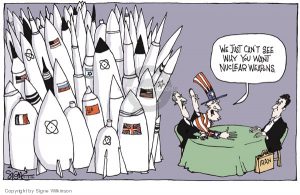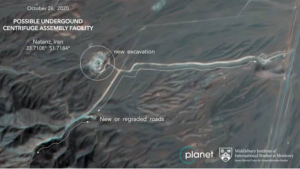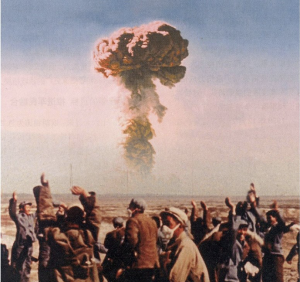
Before President Trump withdrew from the JCPOA or the Iran Nuclear Deal, the United States and Iran had reached a relatively stable relationship. The United States and U.N. would roll back sanctions on Iran, and Iran would comply with nuclear facility checks and limit nuclear infrastructure. However, after Trump pulled out of the JCPOA and approved the assassination of Iranian general Solemani, tensions escalated.
Many believe Trump’s actions to be a short-sighted solution to an ongoing problem. By killing a state official during non-wartime, Trump’s actions impeded Iranian State Sovereignty and set a dangerous precedent in a time of growing technology to kill another governments’ state official. Regardless, apprehension between Tehran and the West increased in late November of this year when an Israeli remote weapon killed an Iranian top nuclear scientist. Shortly after Fakhrizadeh’s death, the Iranian parliament voted unanimously to withdraw from the international checks section of the NPT (Kaplan). Since then, a possible centrifuge facility has been detected by the Middlebury Institute of International Studies (Turak), implying Iran has continued to develop its nuclear program.

A map depicting a possible Iranian Centrifuge from Middlebury Institute of International Studies.
This situation leaves incoming President Biden in a difficult situation. Even top Biden aides are divided on what Biden’s stance should be concerning Iran in the new year (Turak). We believe that Biden can draw on lessons learned regarding the Chinese acquisition of nuclear weapons in the 1960s. First, there are key similarities between Maoist China then, and Iran now. Maoist China had repeatedly threatened the United States, even declaring that a Nuclear War with the United States was not out of the question. Additionally, Chinese support of the Vietcong led many security experts to consider it a rogue state (Graham, 52). These claims are akin to theories that Iran may not operate as a rational state if they acquire nuclear weapons because of Iranian support for groups such as Hezbollah. The fear that Iran would act irrationally is as unsupported as the fear that China would operate as a rogue state. Similarly, “like China in the 1960s, it is likely that the Iranian regime also views the military muscle of the United States with acute trepidation” (Graham, 60). Despite the U.S. attempts to use indirect force against China, they acquired nuclear weapons in October 1964, indicating the United States failed at deterring China from obtaining nuclear arms (Chan).

China’s first atomic test on October 16, 1964, in Xinjiang. Mao wanted to prove the nation was a global power (Chan).
When it was clear that indirect force was failing, the United States opted not to attack China with direct force to prevent China from acquiring nuclear weapons. This same principle can be applied to Iran. Chinese acquisition of nuclear weapons actually may have improved relations between the United States and China, and “China’s nuclear capabilities did not translate into the intolerable military problems foreseen by President Kennedy” (Graham, 62). In fact, “Maoist China became more bellicose after acquiring nuclear weapons” (Waltz, 4). This would not have been the case if the United States had opted to implement direct force to try and stop the budding Chinese nuclear program. Therefore, the United States should focus on de-escalation and deterrence through indirect force, understanding that if Iran ultimately does develop nuclear weapons, there are other diplomatic avenues to pursue.
Iran’s desire for nuclear weapons can be mitigated through deterrence, but likely not completely suppressed. Sagan’s model of proliferation states that nuclear weapons have many key functions besides military deterrence. Mainly, he theorizes that nuclear weapons are “part of what a modern state believes they have to possess to be a legitimate, modern state” (Sagan, 74). If this is the case, Iran will likely move forward (albeit slowly depending on Biden’s policy) in its quest to acquire nuclear weapons. This sentiment is reflected in Iran’s President Rohani’s statement, “The world did not want Pakistan to have an atomic bomb or Brazil to have the fuel cycle, but Pakistan built its bomb and Brazil had its fuel cycle, and the world started to work with them” (Graham, 61). If Iran continues to want to raise its global status, the historical record suggests Iran will not be easily deterred from its acquisition of nuclear arms.
We believe there are key lessons from the 1960s that can be applied to Iran. First, if Iran continues to be open to re-entering a nuclear deal, we believe that this is the ideal course of action. However, Biden and future US leaders should be aware that if the JCPOA and other deterrent strategies fail, building an accountable relationship with Iran is more important than using direct force to prevent them from acquiring nuclear arms. If the Iran Nuclear Deal fails to halt their program, “then at least they will have laid the framework through which deterrent threats can be communicated” (Graham, 63).
